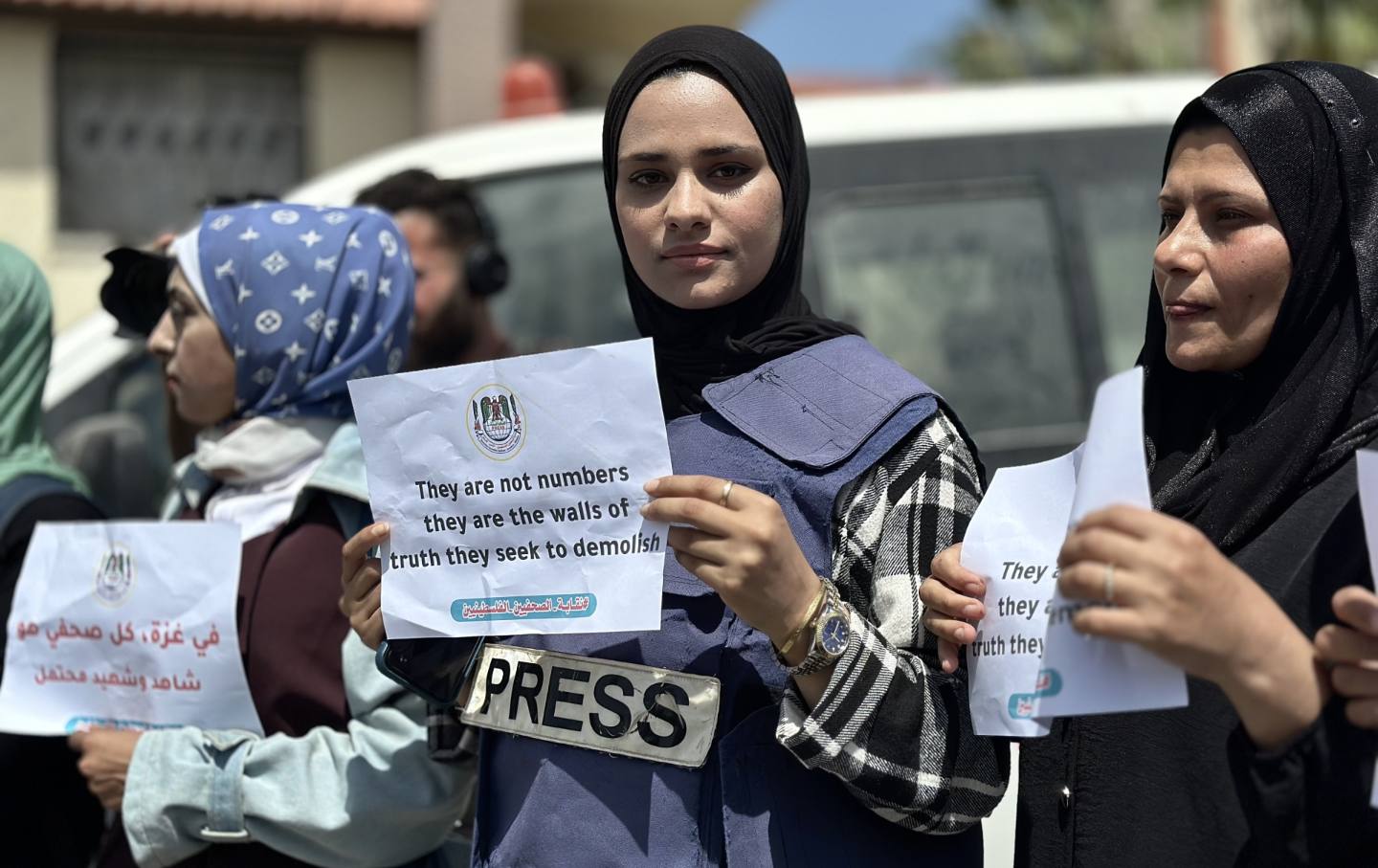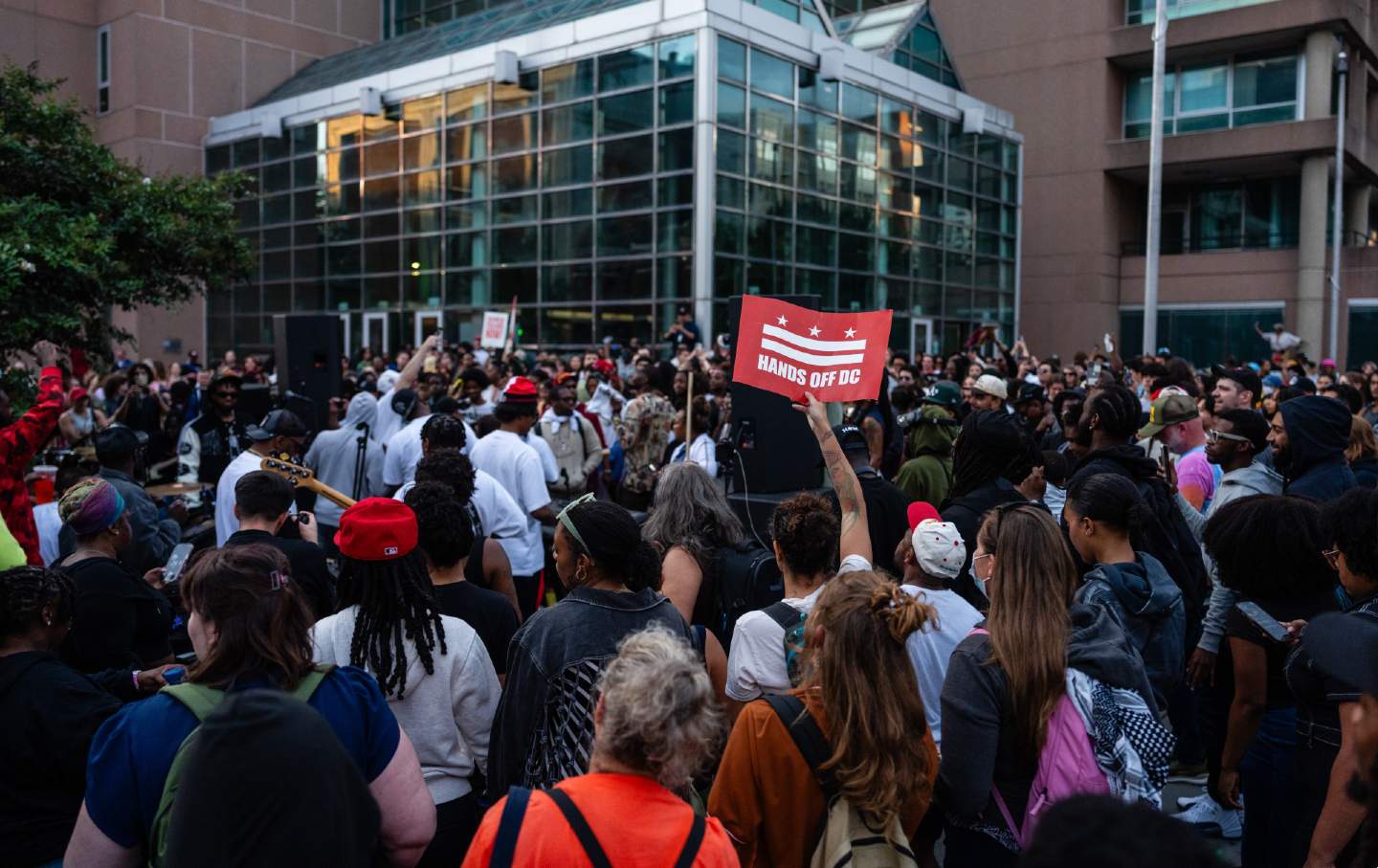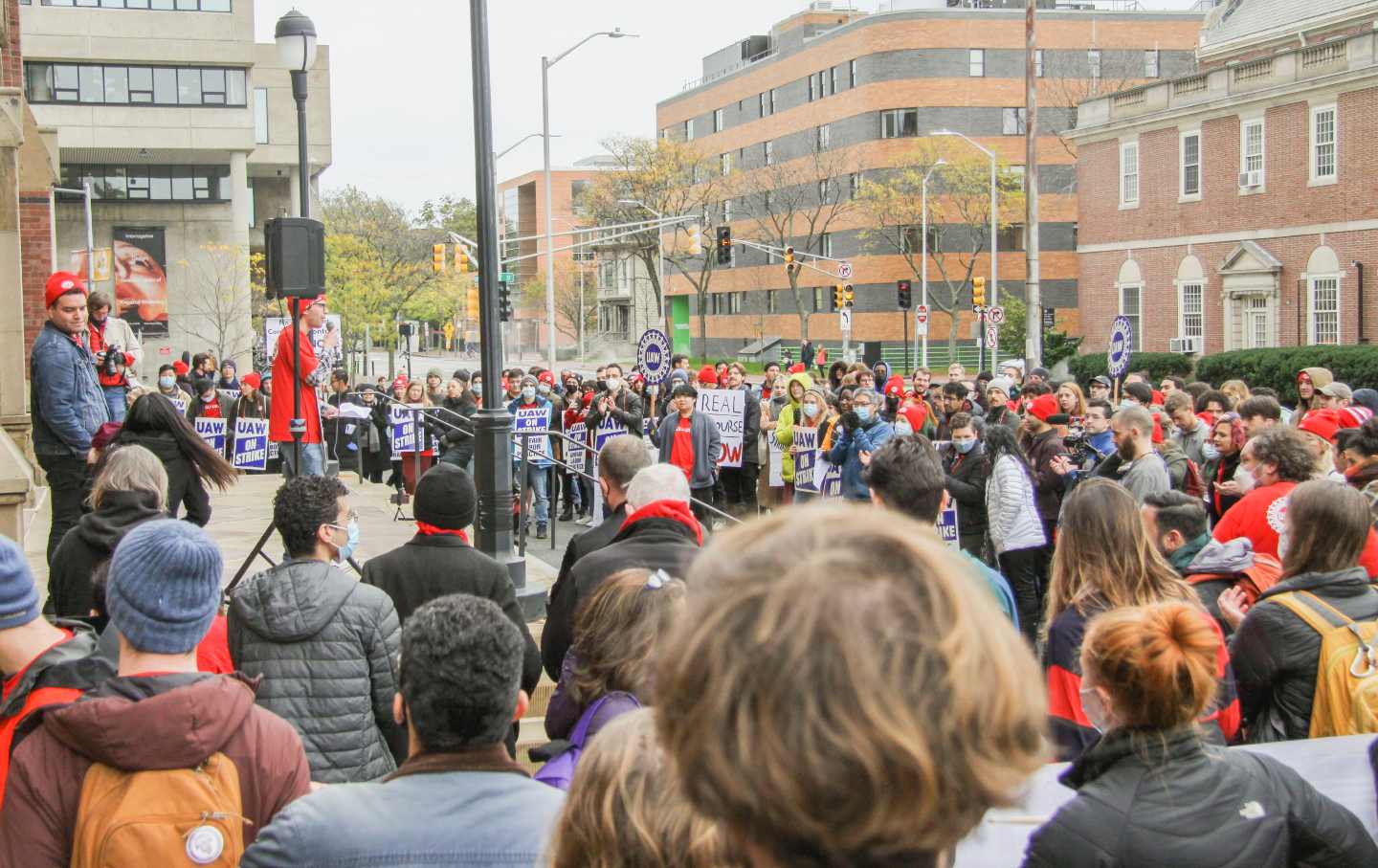Gaza Is the Front Line in the Fight for Press Freedom
The global press corps must stop looking at Gaza as someone else’s crisis—and start demanding justice.

When I learned I’d been selected for a journalism award earlier this year, I felt humbled and honored. But I also felt hollow. It’s not that I’m ungrateful—far from it. But while I am recognized in exile, my colleagues who are still in Gaza remain caged in a death trap, targeted simply for the crime of reporting their own destruction. Recognition alone won’t stop the bombs. It won’t bring back the dead.
World Press Freedom Day, which was marked on May 3, is a time when we deliver speeches, pledge solidarity, and commemorate journalism’s role in holding power to account. But in Gaza, the most basic freedom—the freedom to live, let alone to report—is denied at every turn. Since October 2023, more than 210 Palestinian journalists and media workers have been killed, according to the latest figures from the Palestinian Journalists Syndicate—a toll unmatched in any conflict in modern memory. More remain missing or are presumed dead beneath the rubble.
Most of the dead have been denied even the dignity of recognition. Their names—like Al Jazeera’s Hossam Shabat and Palestine Today’s Mohammed Mansour, both killed by Israeli air strikes in March—briefly surface in headlines and then vanish, as if their lives were as disposable as the rubble they documented.
Since Israel’s assault resumed on March 18 after a brief and faltering ceasefire, Gaza’s journalists have been pushed to the very brink. With equipment destroyed, press jackets offering no protection, and nowhere left to shelter, they keep reporting anyway—because if they don’t, no one will. Like everyone else in Gaza, most journalists are hungry, displaced, and without shelter. But they also carry the crushing weight of their duty: to keep documenting, even as their own lives are being systematically dismantled.
What the world often forgets is that Gaza’s journalists are not just filing stories but also engineering miracles. With the electricity and cell phone service cut off for days or weeks at a time, reporters race to charging points powered by car batteries and climb to the higher floors of ruined buildings hoping to catch a sliver of a cell signal. When cameras are destroyed, they borrow or pool whatever gear survives, patching together broken tripods and cracked lenses. Fact-checking is done in real time amid air raids; entire reports are dictated by voice note when typing becomes impossible. There are no safety nets, no press-freedom hotlines, no emergency extractions. Their only network is each other—and it’s this fragile, fiercely loyal chain of colleagues that keeps the truth alive when everything else is being destroyed.
And let’s be clear: This targeting of Palestinian journalists is not incidental. It is deliberate. Press vehicles, clearly marked, have been shelled. Homes where journalists were sheltering have been bombed. Reporters have received death threats from Israeli officials. To report from Gaza is to know you are in someone’s crosshairs.
I covered the first months of this war from inside Gaza before evacuating with my family for safety. Now I carry the unbearable guilt of knowing my colleagues stayed behind. Our community of journalists is small, close-knit. I wake up to news of more dead and missing, and it feels personal every time, because it is.
I remember crouching in the corner of a half-destroyed room, clutching my press vest as though it might shield me from the next strike. I filmed funerals where the dead outnumbered the mourners, interviewed survivors whose stories I barely had time to record before the next round of shelling began. Each dispatch felt urgent yet inadequate, as I tried to capture the full weight of grief, the relentless fear, the sense of being hunted simply for doing your job.
I don’t write this from a place of survivor’s pride but survivor’s shame. While I am alive and safe, my colleagues are not only risking their lives; they are doing so under conditions that defy imagination. Their bravery inspires me daily. And it leaves me asking: What does freedom of the press mean when it is met with a missile?
As I write this, new ceasefire talks are underway again. But in Gaza, even “peace” has become a kind of theater—a brief pause to bury the dead before the next round of killing begins. The toll keeps rising. The destruction deepens. And through it all, Gaza’s journalists continue to report.
It is no longer enough for international newsrooms to issue statements of support or post solemn tributes when a Palestinian journalist is killed—if they even do that. The targeting of media workers is a war crime under international law. Where are the urgent calls from mainstream organizations for independent investigations into the deliberate targeting of media workers? Where is the coordinated push for enforceable protections and legal redress?
Palestinian journalists are bearing the brunt of a war on truth—and every reporter who believes in press freedom should see their struggle as our own. The global press corps must stop looking at Gaza as someone else’s crisis and start treating it as the front line in the fight for journalism itself. Applause for Palestinian journalists isn’t enough. Protection, accountability, and justice—that is the debt we owe.
Take a stand against Trump and support The Nation!
In this moment of crisis, we need a unified, progressive opposition to Donald Trump.
We’re starting to see one take shape in the streets and at ballot boxes across the country: from New York City mayoral candidate Zohran Mamdani’s campaign focused on affordability, to communities protecting their neighbors from ICE, to the senators opposing arms shipments to Israel.
The Democratic Party has an urgent choice to make: Will it embrace a politics that is principled and popular, or will it continue to insist on losing elections with the out-of-touch elites and consultants that got us here?
At The Nation, we know which side we’re on. Every day, we make the case for a more democratic and equal world by championing progressive leaders, lifting up movements fighting for justice, and exposing the oligarchs and corporations profiting at the expense of us all. Our independent journalism informs and empowers progressives across the country and helps bring this politics to new readers ready to join the fight.
We need your help to continue this work. Will you donate to support The Nation’s independent journalism? Every contribution goes to our award-winning reporting, analysis, and commentary.
Thank you for helping us take on Trump and build the just society we know is possible.
Sincerely,
Bhaskar Sunkara
President, The Nation
More from The Nation

Letter From DC: Goodbye to John Wall, Hello to Celebrating His Rebel Spirit Letter From DC: Goodbye to John Wall, Hello to Celebrating His Rebel Spirit
The former Washington Wizards point guard retires from the NBA, but the anti-Trump protests embody his swaggy defiance.

A Losing “Argument” A Losing “Argument”
The buzzy new publication devoted to “libbing out” reprises the mistakes of the longstanding alliance between neoliberalism and Beltway journalism.

Trump’s War on Higher Ed Comes to the Bargaining Table Trump’s War on Higher Ed Comes to the Bargaining Table
As two of the nation’s largest private graduate student unions fight for new contracts, their members have been among the most vulnerable to the president’s attacks on universitie...

I Went to the “Free Press” Party for Under-30s. All I Got Was Ennui. I Went to the “Free Press” Party for Under-30s. All I Got Was Ennui.
At Bari Weiss’s “Cheers to the Republic” mixer, I met anti-vaxxers, was recruited for a trip to Israel, and heard the word “heterodox” more than I would have liked to.

MAGA Conservatives Are Terrified of the Future MAGA Conservatives Are Terrified of the Future
Trump and his followers don’t just want to halt progress. They want to turn back the clock.

As Federal Support Wanes, States Must Reinvest in Higher Education As Federal Support Wanes, States Must Reinvest in Higher Education
Our education system faces a crisis of affordability and access only amplified by the passage of the Big, Beautiful Bill and Trump’s attempted cuts. States need to step up.


